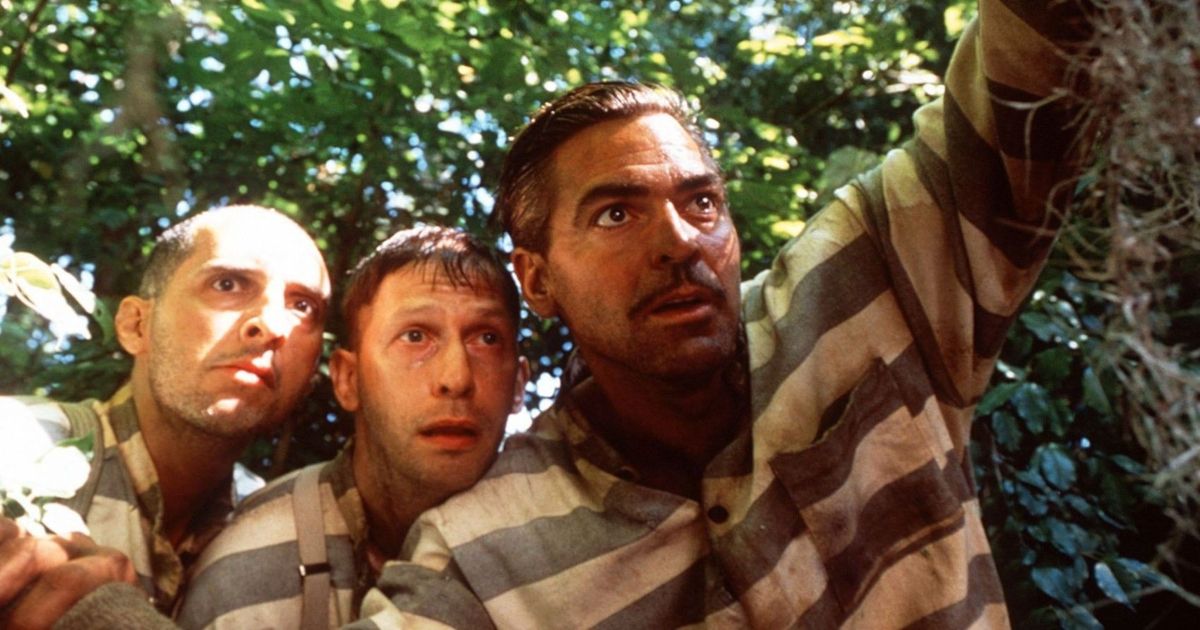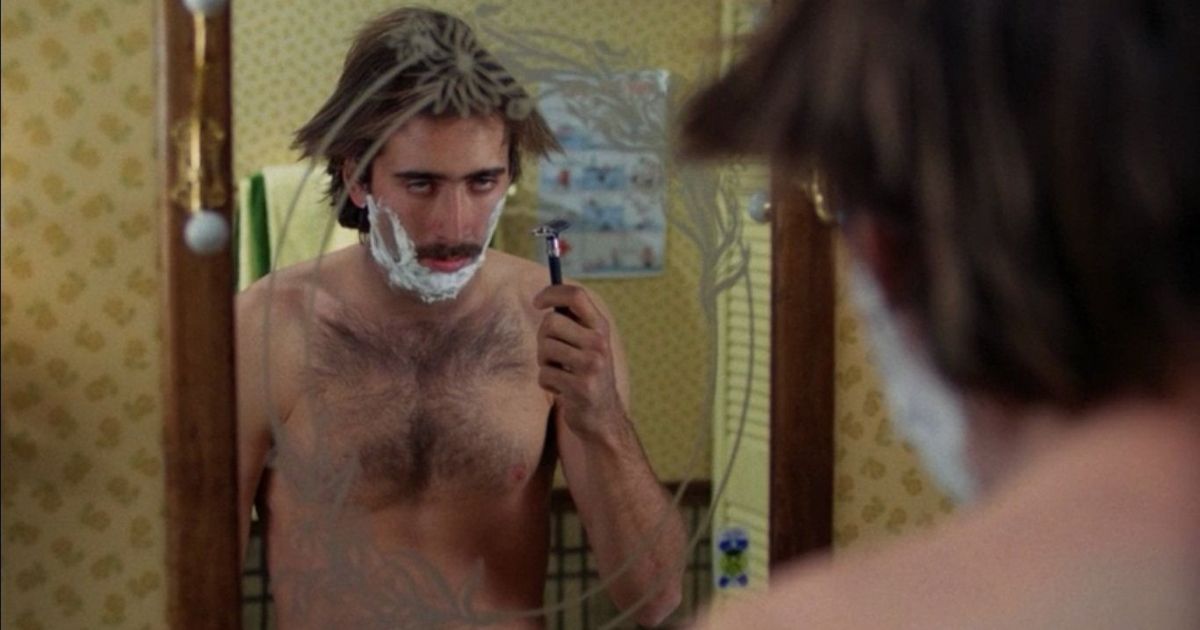The Coen Brothers, Joel Coen and Ethan Coen, are well-known not just for their artistic style but for their primary focus on aspects of distinctly American culture and identity. The Coen Brothers have produced, written, and directed an impressive number of critically-acclaimed films from their career beginnings with Blood Simple (1984) all the way up to their latest projects, producing the Fargo American anthology television series. Since one of the best Coen Brothers films, Barton Fink (1991), was nominated for three Academy Awards and became the first film to win all three major awards at the Cannes Film Festival, the brothers have established themselves as a serious (and seriously talented) filmmaker power-duo.
Their crime-thriller Fargo (1996), starring Frances McDormand, was nominated for seven Oscars and won two. It is ranked number 170 on IMDB's list of the Top 250 Movies of all time and has been developed into the successful television adaptation of the same name. Although the film certainly represented a shift in expectations for what the Coen Brothers had to offer, previous films such as Raising Arizona and later films like O Brother, Where Art Thou? employ parody as a vessel to provide comical yet thoughtful insight into American culture and what defines it.
The Coen Brothers and the Woes of the American Working Class
The Coen Brothers' signature theme is producing films that serve as vignettes into average American life, often highlighting the plight of the proletariat. For instance, Barton Fink (John Turturro), the titular character in the 1991 film, is a working-class American playwright from New York City with big dreams. He clearly is not ready for the harsh notoriety associated with "making it" in Hollywood. This basic storyline is all too familiar. Even the Coen Brothers' characters are archetypes — but this is deliberate. The Brothers take classic American tropes and amplify the root of their significance, throwing any semblance of cliché out the window. It is a comedy, but a bleak one; the Coens do not spare their audience the harsh realities that face the American working class.
Creatives like Fink struggle to make ends meet because art is very rarely profitable, and in Hollywood, you pretty much have to know somebody in order to become somebody (and make a "somebody" salary). The plot quickly devolves into symbolic absurdism, involving a murder mystery that in turn frees an elated Fink from his writers' block. His morbid joy at succeeding as a Hollywood screenwriter outweighs the devastation by the loss of his confidante, revealing telling commentary about American views regarding work ethic and mentalities about capitalism which encourage individuals to step on others' toes in order to scramble to the top. This can also be seen in their masterpieces The Hudsucker Proxy and A Serious Man.
Distinctly American Themes and Imagery
O Brother, Where Art Thou? (2000), starring Coen Brothers regulars George Clooney, John Turturro, and Tim Blake Nelson, was nominated for two Oscars. The storyline is an Americanized version of Homer's epic poem, The Odyssey, even featuring modernized versions of the blind prophet, the cyclops, and three sirens. The film takes place in Great Depression-era Mississippi, in which the three protagonists have escaped from jail and are trying to find their ways home. Of course, since their imprisonment, their lives have moved on without them. The comedic film features distinctly American imagery, such as a KKK lynch mob and a hilarious chance run-in with the infamous bank robber George "Baby Face" Nelson.
Upon the trio's initial escape, the blind prophet (an older, Black man on a pump trolley whose destination is a mystery) informs them that the "treasure" they are looking for will not be the treasure that they are hoping to find. Motivated by greed, they misinterpret his words and set off to seek this alleged treasure. The ex-convicts, who are eventually pardoned in an incredible, hilarious coincidence, must settle for their new reality, as told by the prophet. They do not achieve wealth. They are not gracefully welcomed back into the arms of their families. Just because they have earned their freedom, they are not "free" from their relational or emotional tethers. The Coen Brothers reveal, in one of the best movies about the American Dream, that the Dream is an unattainable lie established by the ruling class in order to suppress the lower classes and maintain a false idealism to strive for.
In the 2010, 10-time Academy Award-nominated film True Grit, the Coen Brothers depict a classic American Western setting. There are cowboys, outlaws, state marshals, and southwestern towns reminiscent of John Wayne movie westerns. A young girl named Mattie Ross, portrayed by Hailee Steinfeld, hires U.S. Marshal Rooster Cogburn (Jeff Bridges), a hardened man who enjoys his drinks a bit too much, to track down her father's killer and bring him to justice. Determined to hold Rooster accountable and ensure that the task is carried out, she insists upon accompanying him on the arduous journey to capture the dangerous outlaw. In doing so, the young girl exhibits grit; she is not what is expected of a girl her age, and she does not care.
Her grit is not without consequence, however; she is bitten by a rattlesnake and loses the affected arm as a result. There is always a grim, ironic twist in these films. Mattie is punished for her tenacity. Her strength, courage, and wit are not her folly, but rather her justified distrust in a figure who represents American authority — a figure who has the power and status to get away with being bad at his job. This sentiment echoes that which is relevant today: the law and justice system simply cannot be relied upon. True Grit (and to some extent, many other Coen Brothers films, such as The Man Who Wasn't There and No Country For Old Men) showcases the devastating impact of American individualism and the failure of the justice system that is supposedly in place to protect its regular citizens rather than those in power.
A Cultural Legacy
The Coen Brothers themselves have become synonymous with American culture, now famous for their numerous representations of various themes specific to American life; with nearly four decades of excellent movies, the list goes beyond the films named in this article. Themes consistent throughout their body of work focus on depicting the plight of the working class and the faults of capitalism, critiques of rugged individualism and patriarchal norms, and the harsher realities of life in America and what it really means to be an American. They manage to achieve this level of depth and complexity without tedious moralizing or excessive despair, thanks to the palatable screwball humor characteristic to their films. The Coen Brothers' filmography is not just a collection of narratives that represent American culture, but a body of work that in itself preserves American culture.


.jpg)
.jpg)
